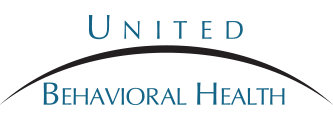“You can learn more about a man in an hour of play than in a lifetime of conversation.”
~PLATO
About Recreation Therapy
Learn About Recreation Therapy at Twelve Oaks
Recreation Therapy or Therapeutic Recreation uses recreation services to help people with illness or disability to develop and use leisure in ways that enhance their health, functional abilities, independence, and quality of life.
Recreation is viewed by addiction specialists as a viable alternative to substance abuse.
Twelve Oaks has a full time Recreational Counselor who will encourage full participation in the Recreation Therapy program to increase positive social interaction, effective communication, problem-solving, frustration management while developing healthy leisure interests and outlets. The goal of the program is to promote sober fun.
Leisure education is educating patients on what leisure and recreation are and what they can mean to them. In these activities, the focus is to remind the patient of what they enjoy and as always promote sober fun. A large number of our patients can’t remember what they enjoy outside of their drug of choice, so leisure education is a key component. The patients enjoy these groups because they are light hearted and they have a great time. Our Recreational Counselor will offer 1:1 sessions that will allow for planning and education of what is available to residents once they leave whether it is sports, community functions, or hobby cultivation.
Team building activities are activities where patients are given limited supplies and/or limited instructions. These are the skill building activities. Each activity is designed so that patients utilize specific skills while completing them.
Occasionally we will be able to participate in general recreation, including volleyball games on Saturdays or the occasional baseball/kickball game.
Recreation Therapy Treatment Model
Recreation Therapy Treatment Model at Twelve Oaks Recovery Center
The Continuum Model for Recreation Therapy
- Rehabilitation/Treatment
- Leisure Education
- Recreation Participation
Self Determination and Enjoyment Enhancement Model
The model is composed of six components that are identified as outcomes associated with self-determination and enjoyment. The six components are:
- Self determination
- Intrinsic Motivation – suggests that activities providing a sense of excitement, interest, or relaxation are beneficial in that they energize behaviors that result in feeling of self determination.
- Perception of Manageable Challenge – based on the idea that a client can overcome something they see as a challenge, such as engaging in conversation with a stranger. Comes from self awareness
- Investment of Attention – a client is able to fully engage in an activity free of distractions
- Enjoyment – Simply the feeling that is an affect of a fun, positive experience
- Functional Improvement – connection between improved functioning as a result of an individual being motivated to engage in an activity that is perceived as a challenge but provides freedom, enjoyment, and an investment of attention.
Leisure Lifestyle Influences are money, education, addiction, age, ethnicity, where you grew up, personality. Leisure Barriers are things that prevent you or make your participation/enjoyment of activities difficult such as:
- Addiction
- Money
- Chronic Pain/Illness
- Interest
- Assumptions/feelings about activities
Play is defined as activity engaged for enjoyment. Negative Perceptions are that only children play. Children learn from play. It increases their cognitive development and social skills. Adults can learn from play as well. Play allows for opportunity for skill strengthening and for flow. Here are some theories of why we play:
- Psycho-Analytic – we play to decrease stress
- Catharsis – repress feeling and offer an outlet for aggression
- Diversion – amuse oneself
- Compensation – fulfill needs not met in other aspects of life (ex. Work)
- Surplus Energy – to get out excess energy
Benefits
Benefits of Recreation Therapy at Twelve Oaks
- Improves Social Functioning
- Develops effective problem-solving skills
- Improves self-esteem
- Decreases loneliness
- Increases skills for socializing drug free
- Increases ability to cope with stress and frustration without chemical dependency
- Develops exercise and relaxation skills
- Increases ability to focus
- Increases feelings of control
- Increases ability to choose non chemical alternatives for achieving goals
- Improves use of free time and increases leisure planning
- Increases involvement in active vs. passive activities
- Increases skills for socializing drug free
- Increases ability to have fun while sober
- Reduces boredom






